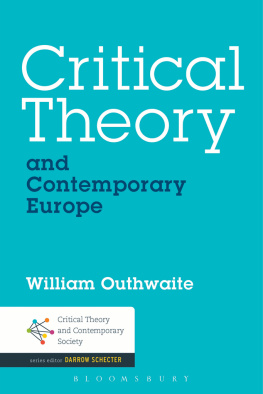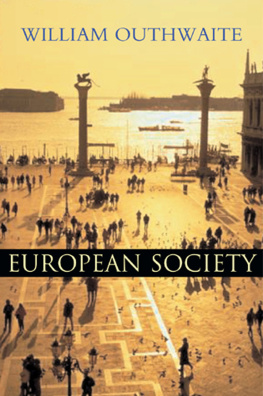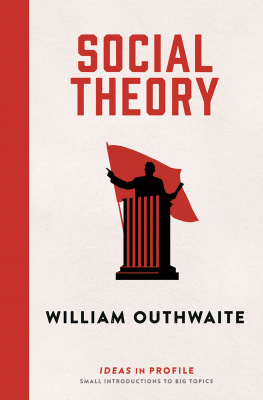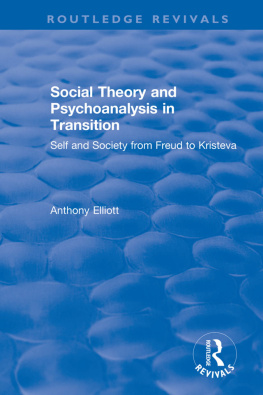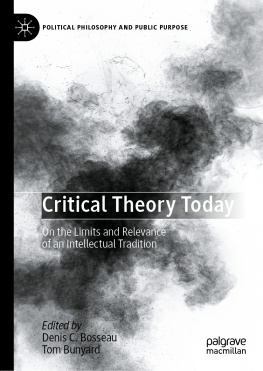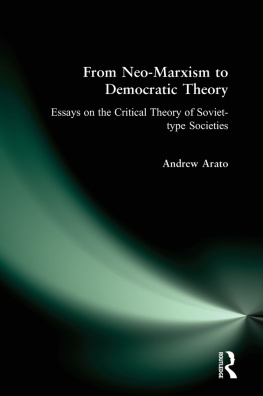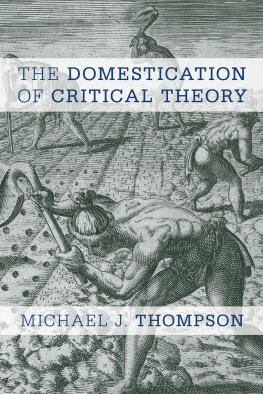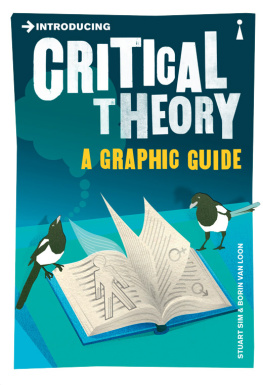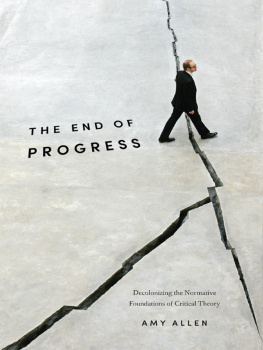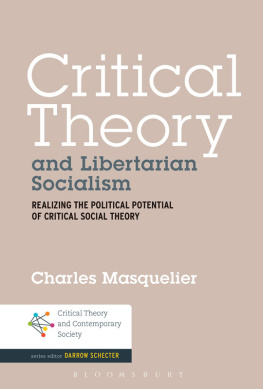ABOUT THE SERIES
Critical Theory and Contemporary Society explores the relation between contemporary society as a complex and highly differentiated phenomenon, on the one hand, and critical theory as a correspondingly sophisticated methodology for studying and understanding social and political relations today, on the other.
Each volume highlights in distinctive ways why (1) critical theory offers the most appropriate concepts for understanding political movements, socio-economic conflicts and state institutions in an increasingly global world, and (2) why critical theory nonetheless needs updating in order to keep pace with the realities of the twenty-first century.
The books in the series look at global warming, financial crisis, post-nation state legitimacy, international relations, terrorism and other issues, applying an interdisciplinary approach, in order to help students and citizens understand the specificity and uniqueness of the current situation.
Darrow Schecter,
Series Editor, Reader in the School of History, Art History and Humanities, University of Sussex, UK
BOOKS IN THE SERIES
Critical Theory and Film Fabio Vighi, Senior Lecturer and co-director of the iek Centre for Ideology Critique at Cardiff University, UK
Critical Theory and Contemporary Europe William Outhwaite, Professor of Sociology at Newcastle University, UK
Critical Theory, Legal Theory, and the Evolution of Contemporary Society Hauke Brunkhorst, Professor of Sociology and Head of the Institute of Sociology at the University of Flensburg, Germany
Critical Theory in the Twenty-First Century Darrow Schecter, Reader in the School of History, Art History and Humanities, University of Sussex, UK
Critical Theory and the Digital David Berry, Department of Political and Cultural Studies at Swansea University, UK
Critical Theory and the Contemporary Crisis of Capital Heiko Feldner, co-director of the Centre for Ideology Critique and iek Studies at Cardiff University, UK
Preface
In this book, I am taking both critical theory and contemporary Europe in a broad and flexible sense. My main focus is on Europe since 1945, but the earlier history of Europe and critical theorys response to it continues to influence the current state of critical theory, which was shaped by the inter-war conjunction of fascism (and Nazism), Stalinism and liberal capitalism. I include under the rubric of critical theory any writer linked to the Institute for Social Research before and/or after the Second World War and some pursuing work recognizably in this tradition, whether or not they had or have close institutional or personal connections with leading representatives of critical theory. Although Norbert Elias, for example, had no substantial contact with the Institute, his Studies on the Germans (Elias, 1989) can usefully be read alongside Klaus Eders much later book on political modernization in Germany. And although Slavoj iek is hostile to Frankfurt critical theory, notably to what he sees as its failure to address Stalinism (iek, 2001), his own work is closely related to critical theory in a broader sense. A narrower definition of critical theory would tie it more tightly to the work of Max Horkheimer, Theodor Adorno and Herbert Marcuse in the earlier period and that of Jrgen Habermas, Albrecht Wellmer and Axel Honneth in the later twentieth and twenty-first centuries, but in relation to Europe such a restriction would make little sense. Habermas provided in 1984 a valuable overview of the principal protagonists (including himself), while including a warning:
The suggestive fiction of a unitary school should not divert too much energy to self-thematisation in the history of ideas. We would do better to turn to the problems themselves, to see how far one can get with the ruthlessly revisionist exploitation of the stimulative potential of such a diverse tradition of research.
Critical theory began with an orientation to what has been called the diagnosis of the time(s) (Zeitdiagnose), meaning in this case the political crisis in Europe and the coming World War. The term was brought to the English-speaking world by Karl Mannheim, in an essay of 1941, followed by a book with the same title. Habermass theorizing has been fundamentally shaped by his response to the historical context of Germany in and immediately after the Second World War, and some of his earliest work directly addressed that context. More recently, Axel Honneth has put the concept of diagnosis of the times at the centre of his own work.
Critical theory made a distinctive contribution to theorizing post-war Europe and the European crisis out of which it had emerged. The first generation theorists (notably Adorno), who had been prominent in theorizing Nazism and other crisis phenomena in the inter-war period, insisted after the War on addressing the horror of Nazism and the Holocaust, in a generally unsympathetic context. Habermass work, too, is crucially shaped by the memory of Nazi irrationality and the regimes misuse of science and technology. Unimpressed by post-war affluence in capitalist Europe and North America, where Marcuses One Dimensional Man (1964) was highly influential, the critical theorists were also without illusions about Soviet socialism, about which Marcuse and others also wrote. They welcomed but also criticized the student and youth movements of 1968, having provided much of the analysis which motivated these and subsequent alternative social movements. Their neo-Marxist analysis of capitalist crisis tendencies and of advanced capitalist culture shaped the thinking of the Left worldwide.
In the 1980s, Andrew Arato and others developed a critical theory of state socialism in association with local critics; much of the most valuable analysis of post-Stalinism, for example that of the Budapest School of the circle around Georg Lukcs until his death in 1971, was shaped by critical theory.
Notes
For a similarly broad approach, see, for example, Stephen Eric Bronner, Of Critical Theory and its Theorists, Oxford: Blackwell, 1994. As in a fast food stall, there are Hamburgers as well as Frankfurters: Jan Phillip Reemtsmas Hamburger Institut fr Sozialforschung has done important work on controversial historical and contemporary issues and publishes a journal, Mittelweg 38, and a book series. There is also an Institut fr kritische Theorie (InkriT) in Berlin, linked to the Marxist journal Das Argument.
Jrgen Habermas, Drei Thesen zur Wirkungsgeschichte der Frankfurter Schule, in Axel Honneth and Albrecht Wellmer (eds), Die Frankfurter Schule und die Folgen, Alexander von Humboldt-Stiftung: Symposium 1984, Berlin, De Gruyter, 1986, p. 11. See also Albrecht Wellmers contribution in the same volume, pp. 2534.
Karl Mannheim, Diagnosis of our times: Wartime Essays of a Sociologist. London: Kegan Paul, Trench, Trubner & Co, 1943.
G. W. F. Hegel, Philosophy of Right, Preface, various editions.
Max Horkheimer, Vorwort, Zeitschrift fr Sozialforschung, 1(1), 1932, p. III.
Furio Cerrutti, Philosophie und Sozialforschung. Zum ursprnglichen Programm der kritischen Theorie, in Axel Honneth and Albrecht Wellmer (eds),

